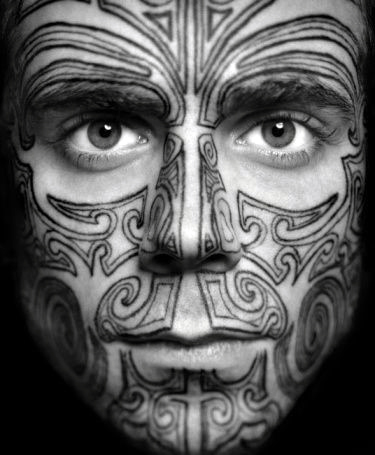 She turned 29 last week, and Marcy enjoyed an almost week long birthday celebration with friends. Long gone are the days of just one get together, as it’s important to keep the party going as long as possible. Dinners, drinks, and countless selfies posted to Instagram preserved the memory of the partying urban girl whose life appears, on the outside, to be the envy of many.
She turned 29 last week, and Marcy enjoyed an almost week long birthday celebration with friends. Long gone are the days of just one get together, as it’s important to keep the party going as long as possible. Dinners, drinks, and countless selfies posted to Instagram preserved the memory of the partying urban girl whose life appears, on the outside, to be the envy of many.
Next year she’ll turn 30 so she knows it’s almost time to get serious about life. Turning 29 has led to a couple weeks of honest reflection. “It’s time to get my personal life in order and settle down,” she has thought to herself in those lucid, lonely moments. But the thought of going out to nice restaurants and drinks 3 or 4 nights a week is hard to give up for the toils and traumas of a serious relationship, marriage, and kids.
She consumes too much alcohol, as most women now do, but doesn’t seem to think it’s an issue, despite the fact that alcohol consumption is a leading cause of depression and 25% of women are now on some sort of anti-depressant medication. Marcy partied her way through university and all of her twenties. It was a good life of fun but now she supplements her day with Prozac so she can cope with modern life. She has dabbled with cocaine and ecstasy, as they were common on the club scene, and she didn’t want to appear as someone not down for a good time with little thought towards the lasting effects it would have on her. Her life was a roller coaster of highs and lows. After her drug phase waned, alcohol became her numbing agent of choice. Sacrificing the immediate fun and pleasure of her carefree 20’s is hard now that her fast life has caught up to her and her once youthful beauty has begun to fade. She’d be lying if she didn’t admit she was anxious about her future.
Marcy wants to have children, “hopefully before 35” she says, but has put that off because she hasn’t found the right man to settle down with. A woman’s peak fertility is between 18-26 years of age but most women have used that prime mating period as party years and have bought into the lie that you can always have the family one day in the future, with the big house and the hedge fund manager husband who adores you; and the baggage accumulated along the way will have no lasting impact. If only someone had told her. Marcy has her own “fur baby” anyways. She showers her love upon a little dog that means the world to her. It serves as a surrogate child until she has time for the real deal. And besides, a dog doesn’t really impede upon her social life like a child would and its presence helps dispel the cloud of loneliness that seems ever-present in her apartment. And motherhood is hard. She’s not ready for that kind of work just yet.
She wouldn’t describe herself as a feminist per se, but Marcy has imbibed and lived by every insidious feminist doctrine that has been covertly sold to young girls over the past 50 years. While feminists appear to be the angry, overweight, unattractive women with grating personalities, there is not a female left on the planet who hasn’t been adversely affected by feminism’s destructive tenets; and Marcy was not immune. For all its enviable outward appearances, her life is a tragic one.
She’s been dating her boyfriend for a couple years now but he told her from the beginning he doesn’t want children. It was a “dead end” relationship from the start but she pursued it anyways. He owns a nightclub in one of the hot neighbourhoods downtown so it’s an exciting life for her. He takes her on great vacations and buys her nice things; so it works for now even though it’s not what she ultimately wants. She doesn’t want to be lonely and likes the excitement it provides until she gets her life together. She’s always getting her life in order, but that can wait til tomorrow.
She’s had sex with 32 men so far, almost 5 times the national average. A bunch of those were one night stands, and a lot of those in a drunken stupor; but Marcy doesn’t really count those when discussing the topic with friends. She had an abortion when she was 24 and didn’t want to have the baby because her live-in boyfriend at the time had a tendency to be abusive. She was into bad boys back then and hopes to now find the stable “good guy” with which to settle down. Liberated and all, she still likes to think of her “number” as lower than it really is; every girl wants to be seen as a good girl after all. She’s only had one STD but thankfully it was the treatable kind. About 25% of her friend group hasn’t been so lucky.
Marcy also discretely sees an older man at the accounting firm where she works as a receptionist. It’s easy because he’s married. The city is an expensive place to live and he provides her with help for her rent and other expenses in exchange for secretive meetings once or twice a week. Her boyfriend has no idea about her side activities but with modern relationships it’s only important to be truthful as long as it doesn’t impact your lifestyle. It’s really quite harmless, she thinks, and it allows her to afford those shoes and bags she needs to fit in with that chic, downtown culture.
She’s attractive but feels the constant pressure to maintain a certain style amid the endless stream of younger and prettier girls that fill the clubs and restaurants nightly. She was once one of those younger bartenders that her club-owner boyfriend had an eye for, and she was the fortunate one to land a relationship with him. She doesn’t want to lose her boyfriend to a newer, younger, prettier girl, at least not until she’s ready to find her future husband. She’s hoping her “sugar daddy” will pay for the new boobs she needs that will help her stand out in an ever more competitive dating market. The four tattoos she’s added over the years made her seem “edgy” at the time, but they are all too common now among millennial women and of little competitive value in signalling her availability and appetite for riskier behaviours.
This has been Marcy’s life so far. One lived for the thrill of the moment with no real forethought on how to prepare for her future. And no one told her that the future doesn’t look that great for her even though in her head she sees it all working out as it did for the Disney princesses and Sex in the City characters she emulated. But that was fiction. Her future will not be so kind.
Looking around her, Marcy sees most of her friends starting to marry, most settling below their expectations because all the good men were already taken. At 30, Marcy’s chances of getting married are 81%; at 33 they are 72%; and at 36 an even worse 61%. For her own sake and sanity she had better not wait until 40 because the chances at 38% are downright dreadful; not to mention that at 40 her chances of conceiving a child naturally are slightly less than 5%.
Thirty came, and with it a small panic that she was still in the same place she was a year ago. She started dating with a more serious intent as her now on again off again relationship was proving less stable. She knew he was seeing other girls on the side but there was little she could do to stop it without risking the loss of all the nights out and the vacations she so enjoyed. She met some men, a couple she really liked, but would never hear from them again after she slept with them on the second or third date. The pill, and feminist doctrine, had liberated her body from the oppressive, puritanical strictures of times past. Liberation was supposed to make her feel good, not used up and disposable.
Thirty-two came and she found she had to be in the gym more to keep her body in better shape to even remotely resemble the younger competition that now seemed to haunt her every time she went out. How could she compete with girls five to 10 years younger for the same men? The wall, which comes at you fast and is unavoidable, was quickly approaching and she didn’t want to be the girl left standing when the music stopped.
Thirty-four came and during an “on-again” phase with her old boyfriend he asked her what she thought about getting married. He was now 44 and after a life of partying was finally ready to settle down. They got married in Italy on her 35th birthday. It was more a feeling of relief than excitement. She had made it. Little did she know that because of her past, the numbers were against her marriage lasting.
She gave up her dream of having kids. It was easier to travel without them, she thought, and her two little pups brought her all the happiness she needed. Over time, her husband started to spend more nights at the club and although she had a hunch what was going on, she tried not to think about it. He had just bought her a nice Rolex for her 40th birthday and she had all the stuff she needed for a happier, more comfortable life. Love was overrated anyways.
A few years later, she wasn’t overly shocked when the marriage ended. They hadn’t had sex in almost a year. He got tired of her criticisms and nagging and couldn’t stand being around her. The club provided him the escape he had needed. She moved into a small apartment and rejoined all the dating apps she thought she’d never need again. It was hard being single in her 40’s. Scrolling through the available men was like showing up to the buffet after a bus load of tourists had ravaged it: there was nothing edible left. But single, and in her 40’s, she was no catch now either. While still somewhat attractive, no one looked at her like they did 20 years earlier. She had lived a hard life and time, being the cruel task master, had not been kind.
She lived alone with only her dogs for company. The memories of old flames she thought were never good enough, made her lament and wonder what had become of them. Looking them up on Facebook and seeing their families left her feeling that much more empty. Had they married well? Were they happy? She was inexplicably sad and couldn’t figure out where she had gone wrong when all she did was live like everyone else was back then in the pursuit of a good time.
There are thousands and thousands of Marcy’s everywhere. They pursued the feminist ideals of pleasure over family, with no thought to what would make one truly happy in the long run, thinking that one day they could still have it all. No one taught them. Many would never have subscribed to the tenets of “militant feminism” but they lived according to its ideals because they had been surreptitiously spoon fed them from an early age.
They lived freely with no constraints and any talk of moral restraint would be mocked as the ancient shackles of a patriarchal society. They were liberated and would no longer conduct themselves according to the old rules. They lived as if they had it all, and one day would. They traded future stability and happiness for the fleeting, temporary pleasures of the day. “Everyone lives like this in their 20’s!” they say, not realizing everyone suffers the consequences of poor choices that could have easily been avoided. Women have been lied to and those that figure it out sooner and put their lives on the trajectory towards marriage and motherhood are always happier and healthier for it.
Marcy’s memories of good times past were no longer a comfort, but rather, a reminder of poor choices, squandered opportunities, and a life lived for temporary pleasure over the long-lasting joy of a life lived with purpose and direction.
 An interesting paper was published a few years ago that outlines what appears to be a long and sullen trend tracking alongside many female advancements: a marked decline in overall female happiness. If we look at the data and the lives of women all around us, we have to ask if Feminism has helped or hurt women over the past few decades. The answer is not as clear cut as many would have us believe. The whole paper can be read here but I will extract the salient point. Stevenson and Wolfers write:
An interesting paper was published a few years ago that outlines what appears to be a long and sullen trend tracking alongside many female advancements: a marked decline in overall female happiness. If we look at the data and the lives of women all around us, we have to ask if Feminism has helped or hurt women over the past few decades. The answer is not as clear cut as many would have us believe. The whole paper can be read here but I will extract the salient point. Stevenson and Wolfers write:
 2) We are a society growing ever more dependent upon substances to cope with the difficulties of life. This study highlights how almost
2) We are a society growing ever more dependent upon substances to cope with the difficulties of life. This study highlights how almost  7) Why are marriage rates down? It’s a multi-faceted answer but one of the main reasons is the
7) Why are marriage rates down? It’s a multi-faceted answer but one of the main reasons is the  4) This past week, Rene Genest, or Zombie Boy, committed suicide at the age of 32. Social media was full of platitudes and condolences and calls for mental illness to be taken more seriously. Suicide is always horrible and a grotesque act of selfishness; we should feel intense sorrow for those left behind. But let’s be clear about one thing: Zombie Boy wore his mental illness for all to see in the tattoos that covered his face and body. So those shocked and saddened, shouldn’t be, for
4) This past week, Rene Genest, or Zombie Boy, committed suicide at the age of 32. Social media was full of platitudes and condolences and calls for mental illness to be taken more seriously. Suicide is always horrible and a grotesque act of selfishness; we should feel intense sorrow for those left behind. But let’s be clear about one thing: Zombie Boy wore his mental illness for all to see in the tattoos that covered his face and body. So those shocked and saddened, shouldn’t be, for  It is undeniable that there is a tattoo problem in the world. While it affects almost every age group, millennials in particular have taken to the pseudo art form and scarred themselves, in many instances, irreparably (it’s as artistic as cartoons or notebook doodles; we’ve lost the meaning of the word ‘art’). Is there any surprise that
It is undeniable that there is a tattoo problem in the world. While it affects almost every age group, millennials in particular have taken to the pseudo art form and scarred themselves, in many instances, irreparably (it’s as artistic as cartoons or notebook doodles; we’ve lost the meaning of the word ‘art’). Is there any surprise that  While the statistics about men tattooing themselves are interesting, and do somewhat mirror the statistics pertaining to women, the stats that emerge about tattooed females tell a much bleaker tale of our cultural drift towards the nihilistic and banal. The
While the statistics about men tattooing themselves are interesting, and do somewhat mirror the statistics pertaining to women, the stats that emerge about tattooed females tell a much bleaker tale of our cultural drift towards the nihilistic and banal. The  She turned 29 last week, and Marcy enjoyed an almost
She turned 29 last week, and Marcy enjoyed an almost  The liberal/progressive/leftist world view is riddled with logical inconsistencies. To wit:
The liberal/progressive/leftist world view is riddled with logical inconsistencies. To wit: Equality may perhaps be a right, but no power on earth can ever turn it into a fact. –Honoré de Balzac, French playwright
Equality may perhaps be a right, but no power on earth can ever turn it into a fact. –Honoré de Balzac, French playwright